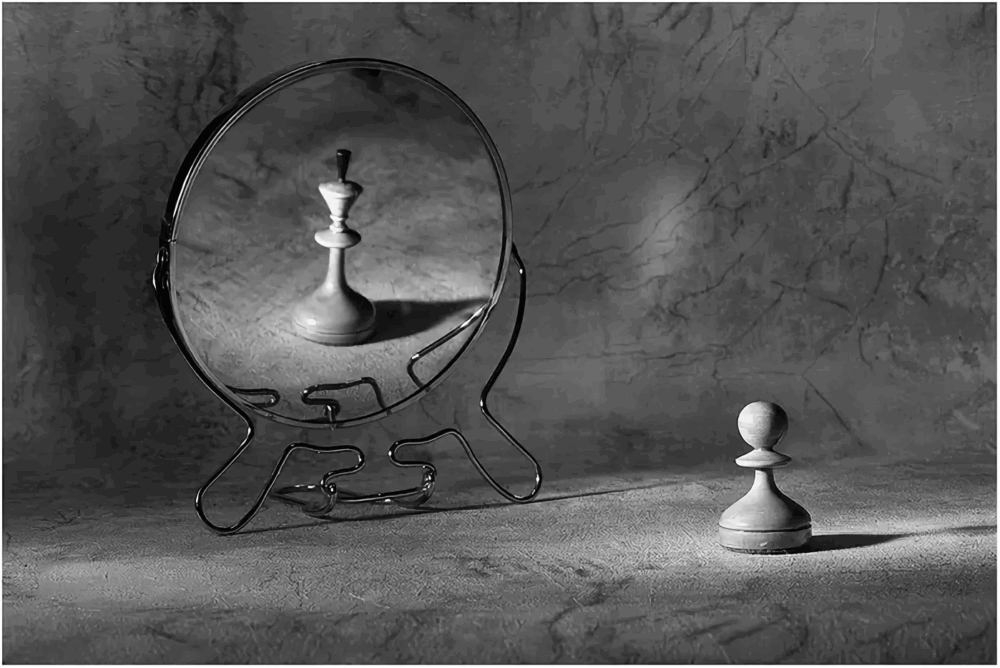Are You Pursuing Self-Development or Self-Deception?
Personal growth is challenging, but it’s also exciting and rewarding. But how can you tell if you’re truly developing yourself, or just falling for the latest trendy pseudo-scientific fad and “faking it”? Use these 17 criteria to check yourself.
17 Criteria: Mature vs. Immature Personality
Let’s look at the criteria that distinguish a mature and honest person from an immature person who lies to themselves.
- A mature person recognizes the limits of their knowledge and skills. “I know that I know nothing” describes them well. An immature person, with an inflated self-esteem, usually thinks they’re the smartest and already know everything.
- An immature person avoids discomfort that comes with solving complex problems and learning new things. They don’t want to push themselves or make their brain work. A mature person sees difficult tasks as a challenge and an exciting opportunity for growth.
- An immature person sees mistakes and failures as misfortunes and can’t reflect on their experiences. A mature person treats mistakes as life lessons and learns from them.
- An immature person fixates on their weaknesses, which often leads to failure. A mature person focuses on developing their strengths and talents to succeed through them.
- After achieving some success, an immature person stops and “rests on their laurels.” This instantly knocks them out of the competition. A mature person always strives for more, believing that “there’s no limit to perfection” and that each achievement is just another step upward.
- An immature person is focused on getting results. A mature person enjoys the process of achieving goals and gets the most satisfaction and benefit from it.
- An immature person blames others or external circumstances for their failures. A mature person knows that they themselves are the main source of their problems and take responsibility for changes in their life.
- An immature person is highly dependent on others’ opinions and social approval. They need to feel they “did the right thing.” A mature person doesn’t care what others think or say, focusing only on their own interests and goals.
- An immature person chases short-term goals and quick results. For a mature person, their goal is a measure of their life, so they act with a long-term, strategic perspective.
- An immature person fears making serious, responsible, or risky decisions, preferring to do nothing or let others decide. Mature people make all their own decisions, using intuition and careful analysis.
- An immature person can’t handle feedback and gets offended when confronted with facts about themselves. A mature person is willing to pay to have others point out things they might be missing.
- An immature person only does what interests them “when they feel like it,” or as long as it’s enjoyable. When real difficulties arise, they quit. A mature person treats their work professionally, methodically working day after day and using challenges to grow their skills.
- An immature person relies on myths, superficial advice, and book knowledge. A mature person relies on their own and others’ reflected experience, concrete facts, and the practical expertise of professionals and colleagues.
- An immature person believes in “universal formulas,” “ironclad rules,” and “eternal principles” that work in any situation. A mature person understands that there are only tendencies and probabilities, that context matters, and even a tiny factor can overturn any “law.”
- An immature person, upon learning a new idea, immediately throws all their energy, time, and resources into it. A mature person acts wisely, first testing the idea in practice and evaluating its effectiveness.
- An immature person acts by trial and error, blindly cycling through options without understanding how they might improve the situation. A mature person follows Lenin’s rule of “concrete analysis of a concrete situation,” systematically eliminating ineffective solutions and choosing what truly works.
- An immature person thinks linearly and statically, believing one cause leads to one effect. A mature person thinks systemically, seeing reality as a dynamic interaction of complex systems with feedback, where one effect can have multiple causes and one cause can have multiple effects.
Of course, these aren’t all the possible criteria and differences—there could be many more. But what matters is that you can use these 17 points as reference markers to evaluate your own personality, life strategy, and self-realization.



